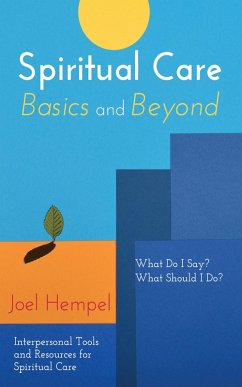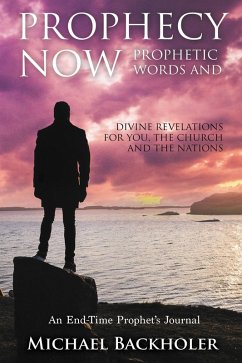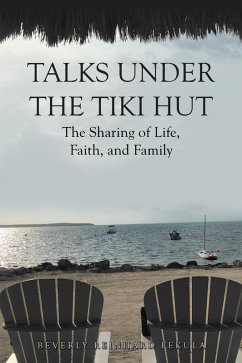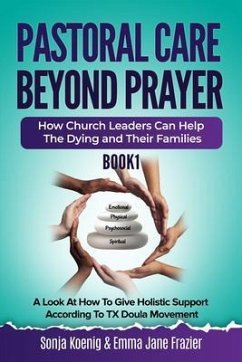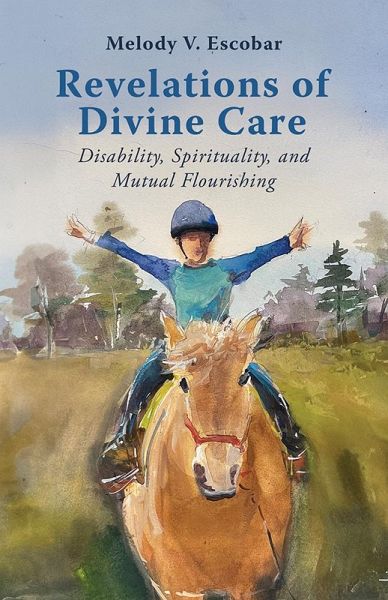
Revelations of Divine Care (eBook, ePUB)
Disability, Spirituality, and Mutual Flourishing

PAYBACK Punkte
22 °P sammeln!
At a Texas Hill Country ranch, Melody V. Escobar and her young son meet Bo, the retired racehorse that becomes his "go-to" sage in a remarkable equine program for children with disabilities. The weekly ritual in the riding arena ignites an inner transformation for Escobar and an ethnographic study of everyday caregiving. In Revelations of Divine Care, Escobar explores Julian of Norwich's vision of unconditional love and the innovative ways in which all people--with or without a disability--can challenge dynamics of power and control to nurture communities in which love compels others to love.E...
At a Texas Hill Country ranch, Melody V. Escobar and her young son meet Bo, the retired racehorse that becomes his "go-to" sage in a remarkable equine program for children with disabilities. The weekly ritual in the riding arena ignites an inner transformation for Escobar and an ethnographic study of everyday caregiving. In Revelations of Divine Care, Escobar explores Julian of Norwich's vision of unconditional love and the innovative ways in which all people--with or without a disability--can challenge dynamics of power and control to nurture communities in which love compels others to love.
Escobar presents a fresh reading of Julian's revolutionary teachings and connects the fourteenth-century mystic with first-person narratives of mothers who are caregivers. She calls us to re-vision our understanding of kenosis and advocate for the mutual flourishing of every being, following the pattern of generative trinitarian relationship where each is in and for the other. Escobar invites us to bring our own stories into conversation with members of our communities, providing theological language for what it means to live a spirituality of solidarity guided by faith, one in which "active mercy," committed works of charity, is considered a universal practice instead of the experience of a select few.
Relevant for ministers, theologians, activists, and caregivers alike, Revelations of Divine Care presents a model for community in which compassionate care becomes "life giving and making." Escobar offers new, practical applications for being "church," such as placing persons with disabilities and their families at the "speaking center," countering ableist programming with creative liturgical practices, and prioritizing respite care for the blossoming life of the whole community. She draws from the wells of wisdom of the Christian mystical tradition to illuminate the interdependence of all life--which we ignore at our own peril--reminding us of the urgency and beauty of unconditional love and care, whether in the riding arena, the church, or the public sphere.
Escobar presents a fresh reading of Julian's revolutionary teachings and connects the fourteenth-century mystic with first-person narratives of mothers who are caregivers. She calls us to re-vision our understanding of kenosis and advocate for the mutual flourishing of every being, following the pattern of generative trinitarian relationship where each is in and for the other. Escobar invites us to bring our own stories into conversation with members of our communities, providing theological language for what it means to live a spirituality of solidarity guided by faith, one in which "active mercy," committed works of charity, is considered a universal practice instead of the experience of a select few.
Relevant for ministers, theologians, activists, and caregivers alike, Revelations of Divine Care presents a model for community in which compassionate care becomes "life giving and making." Escobar offers new, practical applications for being "church," such as placing persons with disabilities and their families at the "speaking center," countering ableist programming with creative liturgical practices, and prioritizing respite care for the blossoming life of the whole community. She draws from the wells of wisdom of the Christian mystical tradition to illuminate the interdependence of all life--which we ignore at our own peril--reminding us of the urgency and beauty of unconditional love and care, whether in the riding arena, the church, or the public sphere.
Dieser Download kann aus rechtlichen Gründen nur mit Rechnungsadresse in A, D ausgeliefert werden.





